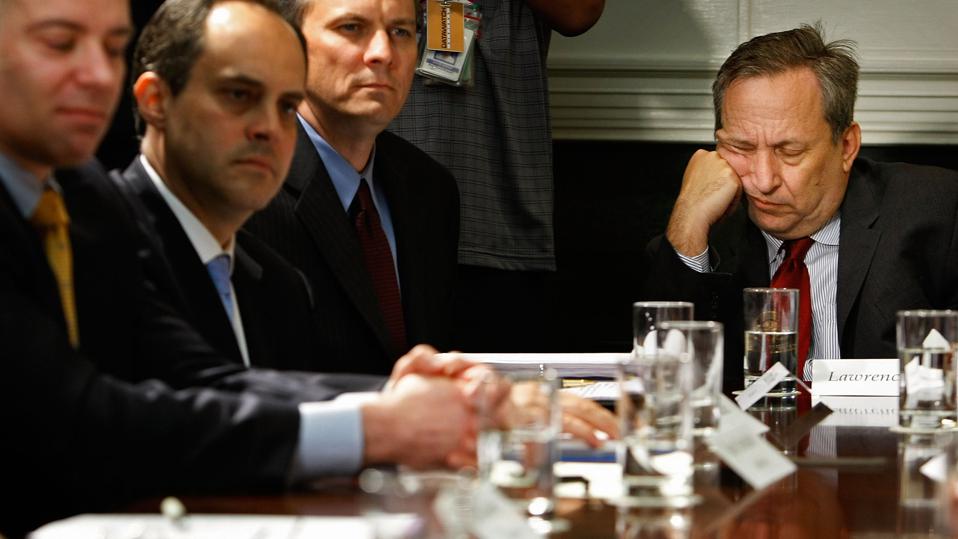Lawrence Summers, an economist who worked in the Clinton and Obama administrations, has been tweeting up a storm this weekend, advocating for a complete bailout of Silicon Valley Bank, which collapsed on Friday after a bank run reportedly led by billionaire Peter Thiel. But Summers doesn’t want to hear any “moral hazard lectures,” as he puts it, about the risks of helping companies that had accounts with SVB.
“I hope and trust that the authorities are on a path to doing what is necessary to restore confidence. Acting decisively and rapidly is both the cheapest for taxpayers and the best for the economy. Failure to act strongly enough would be a Lehman-like error,” Summers tweeted on Sunday.
Summers, a man who helped repeal the Glass-Steagall Act while Treasury Secretary under President Bill Clinton, also says any other banks should get help to protect the U.S. banking system more broadly.
“It is a clear imperative that all #SVB segregated assets and uninsured deposits be fully backed by Monday morning. Also imperative that sufficient support be provided to other banks to insure full availability of deposited funds across the banking system,” Summers tweeted.
Anticipating the reaction Summers would surely receive to such a strong call for government intervention to ensure that companies still had all their money, Summers tweeted that he didn’t want to hear any lectures about “moral hazards.”
“This is not the time for moral hazard lectures or for lesson administering or for alarm about the political consequences of ‘bailouts’,” Summers tweeted, putting “bailouts” in scare quotes despite the fact that he was proposing a bailout by the simplest definition possible.
Summers argued that trying to differentiate between different customers at SVG bank would be a “luxury” that can’t be indulged. Time is of the essence, according to Summers.
“Authorities only have the luxury of ruling out classes of institutions as bidders if they are certain that confidence will be fully restored. Confidence is most important now,” Summers tweeted.
Oddly enough, Summers doesn’t believe the collapse of SVB is a “systemic risk,” which would seemingly contradict the argument that the bank needs an immediate bailout.
Summers also took a very different attitude when the people who might get a “bailout” where average Americans with college loan debt. Back in 2022, Summers tweeted against student loan relief, arguing that money for that relief would be better spent on allowing people who couldn’t afford to go to college a new opportunity to go to college—precisely the idea behind student loans to begin with.
“Every dollar spent on student loan relief is a dollar that could have gone to support those who don’t get the opportunity to go to college,” Summers tweeted in the summer of 2022.
Summers did not immediately respond to an email Sunday afternoon. I’ll update this post if I hear back.

